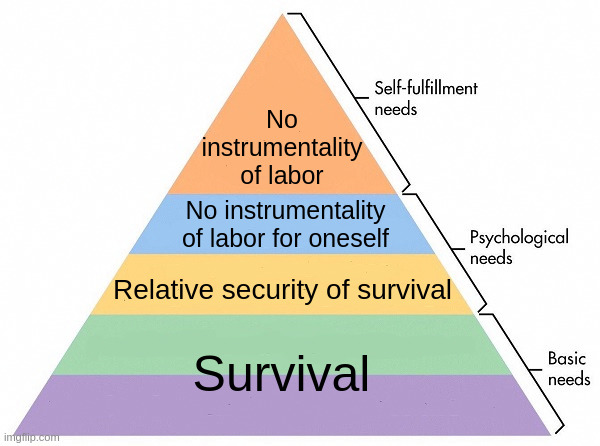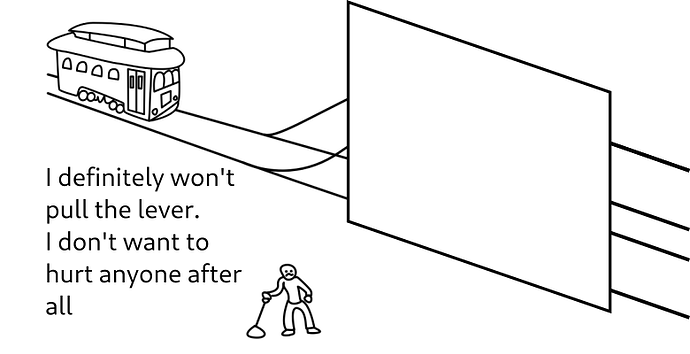There are pragmatic cases for and against incentivizing labor by remunerating it with access to consumer goods. I find the debate hard enough to settle in that sphere alone, and in my opinion it is ultimately a matter of taste. Does one prefer more rules and predictability or fewer rules and less predictability?
In this thread I’d like to focus on and critique the moral or “gut feeling” objections to labor incentivization as often professed by Jan Groos.
Firstly (and less importantly), I believe this attitude is a symptom of privilege. People who haven’t feared for their survival give undue weight to the top of their pyramid of needs (self-realization) vis-a-vis its foundation (survival).
Secondly, the attitude is founded on a negative conception of freedom and a deontological ethics. In this view, the problem with “coerced labor” in a social setting is that it is “inflicted”, whereas the threat of starvation merely exists. In trolley problem terms: we don’t know how many people are on each track (pragmatic debate), but the deontologist chooses a priori not to pull the lever because they consider actions above inaction. They give greater weight to the restrictions they would be “actively inflicting” on others (curtailing of negative freedom) than to the already existing restrictions of material reproduction which they could help alleviate (positive freedom).
Thirdly and least importantly, these critics may be unaware that this coerciveness of labor will likely persist even under their proposed systems. If I want dinner, I have to cook it; If I want a tidy desk, I have to clean up. The individual may be “forced” to “exchange labor for necessary goods” even if everything is held in common.
Lastly, a proposal. If people want “unconditional” access to consumer goods, all they have to do is team up with at least one breadwinner and share one’s income (money, labor vouchers etc.). Just like under communism, this results in one having “unconditional” access to consumer goods, the catch being the same in either case: There’s no such thing as unconditional consumption on the collective scale. I’ve read of one German collective doing exactly that. “Communism” is already possible under capitalism, although socialism will of course be much more conducive for it in terms of “both base and superstructure”. Such collectives can simply grow and merge until they subsume all of society.

